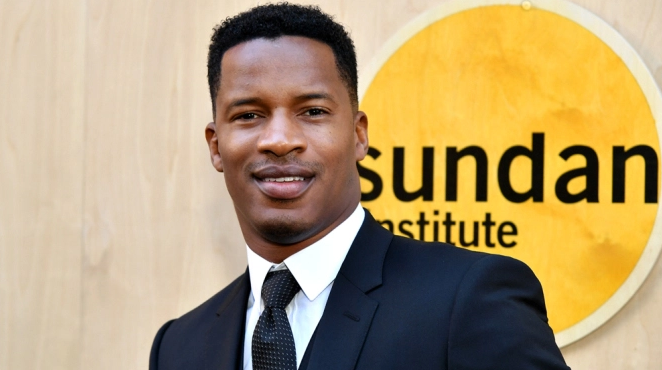I’m taking a vow of celibacy. I’ve had it. I’m not fucking anymore guys. I don’t want any more dicks in my mouth. I’m no longer interested in the intimacy of someone else’s body, its scents and noises, its imprudence, its imposition. I just now decided.
I just now decided because about ten minutes ago, apropos of nothing, and sans any sort of alternate greeting, a guy sent me a picture of his cock on Grindr. That’s not why I’ve decided on celibacy–Grindr is the Land of Unsolicited Dick Pics, and I’ve been around long enough at this point to know that a seemingly out-of-the-blue snapshot of a guy’s cock via one electronic medium or another is basically gay-speak for the once-popular “hey man how’s it goin.” In school we used to send tightly-folded notes to our crushes, confessing our emotions and asking if they felt the same. These days, we sends close-ups of our freshly bleached assholes. As Carrie Bradshaw says in the pilot episode of Sex & The City: “Welcome to the age of un-innocence.”
The point is, I wasn’t offended that he sent me the picture. I was offended, however–not to mention mildly repulsed–by the shoestring he’d fashioned into a home-made cock ring. Listen, we all have our kinks and fetishes, and I SUPPORT YOU, but if there’s one thing I can’t get it up for, it’s a cock ring, store-bought or otherwise. Upon seeing the picture, I immediately removed Grindr from my phone, typed up a celibacy contract, printed it off, and signed it. Later today, I’m going to have it notarized. I’m telling you, I’m done.
If you think I’m overreacting, please consider that only a few days ago, I was chatting with a different guy–it was going well, actually, as far as chatting with guys on Grindr is concerned (translation: we managed about ten blocks of text before the photo-sharing commenced, which is significant; I felt like I was being courted, like a straight girl). His face was visible and I didn’t hate it, he was conversant and friendly, and even though I’m prone to interpret any interest at all from a man as a sign that he’s thinking about wifeing me, we objectively seemed to be hitting it off. Once we got to the pic-exchange portion of the evening, though, things took a turn for the worse, when a full-body shot he’d unfortunately failed to crop his feet out of revealed an accessory far different from the other guy’s homemade cock ring, but equally distressing: a county-issued house arrest anklet, black and boxy and unmistakable.
I wasn’t sure how to proceed. It seemed perfectly reasonable to be like, “Are you on house arrest?” The evidence was there, but who knows how recently that photo had been taken. Perhaps he’d been but was no longer legally confined to the perimeter of his parents’ property (yes, he lives with his parents, a common phenomenon among twenty and thirty-something gay men here, which warrants a post of its own). Still, I didn’t want to be rude. By then, I’d already seen homeboy’s dick (moderately sized) and ass (maybe too hairy) and had felt zero compunction about asking him his preferred sexual activities, but somehow, inquiring after his criminal background seemed forward adn gauche. Instead, after suggesting that we get together sometime, I asked (innocuously) if he would be able to travel. (In gay dating, where, in my personal experience, the word “date” has come to encompass anything from a formal excursion involving drinks, dinner, and maybe a movie, to a date-like hang-out session consisting of awkward small talk and obligatorily viewing about thirteen minutes of something on Netflix pre-sex so that it’s definitely not a hook-up, to one guy Google mapping the other’s address and showing up for approximately twenty-eight minutes of definitely hooking-up, “can you travel” means do you have a car, at least in cities without adequate public transportation. Its opposite question is, “can you host?”) He revealed (quite casually, I thought) that no, he couldn’t travel because, yes, he was on house arrest. Since he’d already admitted to living with his parents, it didn’t feel necessary to ask him if he could host, because fucking guys in bedrooms they’ve occupied since they were prepubescent, amongst tarnished soccer trophies and race car curtains, is something I gave up when I turned thirty, thank you very much.
To be clear, I don’t have a whole lot of qualms about hooking up with or even casually dating a man with a criminal record. In fact, there’s like a 90% chance I already have. Frankly, I’m not that choosy, and also, I find felons to be kind of hot. One has to be realistic about these things, especially if the goal is not so much a steady and/or long-term life partner (I don’t think it’s realistic, in my situation) as an occasional companion for casual sex. His home-bound status was hardly reason for disqualification, especially considering that I hardly ever leave my own house. The only difference between our situations is that his is court-ordered and I don’t live with my parents. Nevertheless, the thing about house-arrest anklets is that they don’t come off until you’ve done your time, and something about the thought of having sex with a guy who was wearing one didn’t do it for me. I guess I thought it would be a distraction, that I’d feel it clanking against my own ankles as we rolled in the proverbial hay (or maybe actual hay: he’s a white guy who lives on the outskirts of South Bend, so who the fuck knows what kind of delinquent country bumpkin life he’s leading), alleviating any ability I might have had not to wonder the whole time about what he’d done to land himself in hot-water in the first place (I couldn’t bring myself to ask him outright). Call me old fashioned, but if I’m fucking a guy with a rap sheet, I want the proof to be tear-drop tattoos under his eyes or an proven talent for carving shanks out of bars of soap–not some unfortunate accessory ruining the line of every outfit he owns. As such, I decided that if you’re on house arrest and you want to get up in this? You need to be Shia Labeouf in Disturbia.
So anyway. Celibacy. Really, it shouldn’t be difficult. Abstaining won’t take as much effort as finding someone who doesn’t offend all of my terribly refined sensibilities or who measures up to my really not very high standards. I really cannot express for you what it’s like to be a gay man trying to date (or even fuck) in South Bend, Indiana. There’s the guy who suggested we fuck in his Jeep in the Kohl’s parking lot, or the guy who wanted to fuck me on an un-sheeted mattress on the floor of his unbelievably filthy bedroom, mere feet from a dried but still reeking pile of dog shit, or the guy who invited me over to smoke but failed to warn me that his grandmother was dying on a rented hospital bed in the living room, her oxygen tank hissing rhythmically the entire time he was inside me. There’s the guy I dated for a few months a while back who was such a talented kisser that I didn’t mind that he “wasn’t mobile” (gay-speak for “doesn’t have a car”) and regularly unemployed, until I did. There’s the guy I dated for a shameful nine months (off-and-on), even though he was, I realized about two and a half months in, virtually homeless, or the guy I was seeing last year who used to come over and we’d fuck, yeah, but we’d also have actual conversations and watch Law & Order: SVU and he’d stay the night and we’d wake up together in the morning who I eventually discovered, when I finally got around to looking him up on Facebook after he suddenly stopped replying to my text messages, was married to a bubbly-looking woman with whom he had not one, not two, not three, but four bubbly babies. And I have way worse stories I could tell you, but I’m hanging on to them for now, because something’s gotta go in the memoir.
The thing is, I’ve flirted with celibacy before. Seven years ago when I moved to South Bend from Chicago, I was so depressed at having left he Windy City and so wrecked by an unfortunate relationship with a guy that I had zero interest in sex. I would look at men and feel nothing. I’d jack off a couple of times a month but mostly I got high and read biographies of famous writers and artists and smoked as many cigarettes as I could fit into a day without throwing up. This went on for just over two years, and you know what I learned? A person doesn’t really need to have sex. We think we do, because our culture is permeated with sex. We go around telling our friends, “I haven’t gotten laid in a week,” as if we’re telling them we’ve just been diagnosed with some incurable cancer. In another episode of Sex & The City (yeah, I have a problem), Carrie is horrified when Miranda confesses that she hasn’t had sex in three months, and recently, a straight male friend of mine wondered if he shouldn’t break up with his girlfriend of almost a year because she was going to Europe for two weeks and he wasn’t sure he could “go that long without getting any.” A complete gentleman, he reasoned it was better to break-up with her before she left than cheat on her while she was gone.
There’s no shortage of philosophers and sociologists and other theorists who have written extensively about the correlation between (especially) American capitalism and our modern conceptions of sex/love–I’m thinking, for instance, of Beatrice Preciado, writing in her essay Pharmaco-pornographic Politics: Towards a New Gender Ecology, “The mutation of capitalism that we see in our time can be characterized by the conversion of ‘sex,’ ‘sexuality,’ ‘sexual identity,’ and ‘pleasure’ into objects used for the political management of life, and also by the fact that this ‘management’ itself takes place through the innovative dynamics of advance techno-capitalism.” We are bombarded with sex and sexualization at every pop-cultural turn, and even when we’re not, we’re thinking about it because suddenly it’s taboo. Look, I like to get off as much as anyone, but as someone who gave it up for a while, I’m telling you, there are other things. Sure, I was in the midst of a near-crippling depressive episode, but my depression typical manifests itself in poor sexual decisions, not zero sexual decisions. I’m not saying it’ll be the easiest thing in the world. I’ll get horny watching Game of Thrones or Flip or Flop (mmm TAREK) and wanna find someone to bang and I might even download Grindr or any of the other apps gay men are using to find each other these days, but when that happens, I’ll just remind myself of Preciado’s words and take a particularly obnoxious solace in the fact that my celibacy is a choice that exempts me, at least in a small way, from the horrors of late capitalism.




